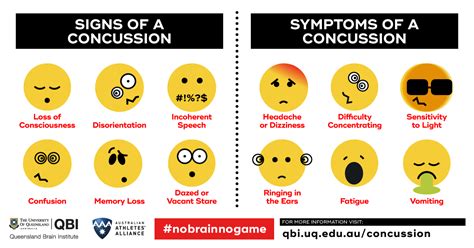How to Tell If You Have a Concussion: Recognizing the Signs and Symptoms
A concussion, also known as a mild traumatic brain injury (mTBI), is a type of traumatic brain injury caused by a bump, blow, or jolt to the head or body that causes the brain to move rapidly back and forth inside the skull. This can cause the brain to bounce around or twist, resulting in temporary disruption of brain function. It's crucial to understand the signs and symptoms to seek appropriate medical attention. Ignoring a concussion can lead to serious long-term health consequences.
Common Signs and Symptoms of a Concussion
Concussion symptoms can vary greatly from person to person, and they may not always be immediately apparent. Some individuals may experience only mild symptoms, while others may have severe symptoms. It's important to be aware of both physical and cognitive symptoms.
Physical Symptoms:
- Headache: This is often the most common symptom, ranging from a mild dull ache to a severe throbbing pain.
- Dizziness: Feeling lightheaded, unsteady, or off-balance.
- Nausea and Vomiting: Feeling sick to your stomach, potentially leading to vomiting.
- Balance Problems: Difficulty with coordination and equilibrium.
- Blurred Vision: Temporary impairment of vision.
- Sensitivity to Light and Sound: Experiencing discomfort or pain in bright light or loud noises (photophobia and phonophobia).
- Ringing in the Ears (Tinnitus): A persistent ringing, buzzing, or hissing sound in one or both ears.
Cognitive Symptoms:
- Confusion: Difficulty concentrating, remembering things, or following conversations.
- Memory Problems: Trouble recalling events before, during, or after the injury. This includes both short-term and long-term memory loss.
- Slowed Thinking: Feeling mentally foggy or experiencing difficulty processing information.
- Difficulty Concentrating: Struggling to focus on tasks or maintain attention.
- Problems with Speech: Difficulty finding the right words or expressing thoughts clearly.
- Irritability: Feeling easily frustrated, angry, or agitated.
- Changes in Sleep Patterns: Experiencing insomnia, excessive sleepiness, or disrupted sleep cycles.
Emotional Symptoms:
- Anxiety: Feeling overwhelmed, worried, or excessively anxious.
- Depression: Experiencing persistent sadness, hopelessness, or loss of interest in activities.
- Mood Swings: Experiencing unpredictable and rapid shifts in mood.
When to Seek Medical Attention
Don't ignore any potential concussion symptoms. Even if symptoms seem mild, it's essential to seek medical evaluation. A healthcare professional can properly diagnose a concussion and recommend the appropriate treatment and recovery plan. Seek immediate medical attention if you experience:
- Loss of consciousness: Even a brief loss of consciousness warrants immediate medical attention.
- Severe headache: A persistent, worsening, or unusually intense headache.
- Seizures: Any involuntary muscle contractions or convulsions.
- Deteriorating symptoms: If your symptoms are getting worse, rather than improving.
- Vomiting: Persistent vomiting that doesn't subside.
- Weakness or numbness: In any part of your body.
- Pupil dilation: Unequal pupil size.
Taking Steps for Recovery
Following a concussion diagnosis, your healthcare provider will likely recommend rest and gradually increasing activity levels as you recover. This might include cognitive rest (limiting screen time, reading, and studying) along with physical rest. It's crucial to follow their advice closely to ensure a full recovery.
Disclaimer: This information is for educational purposes only and should not be considered medical advice. Always consult with a healthcare professional for any health concerns or before making any decisions related to your health or treatment.
